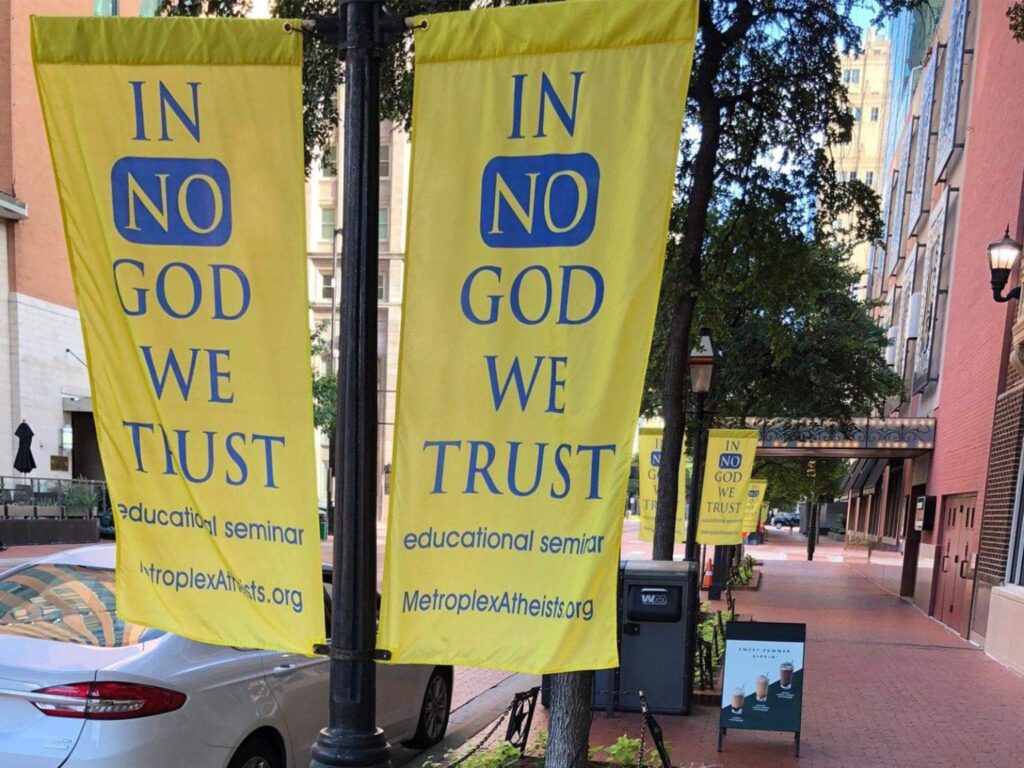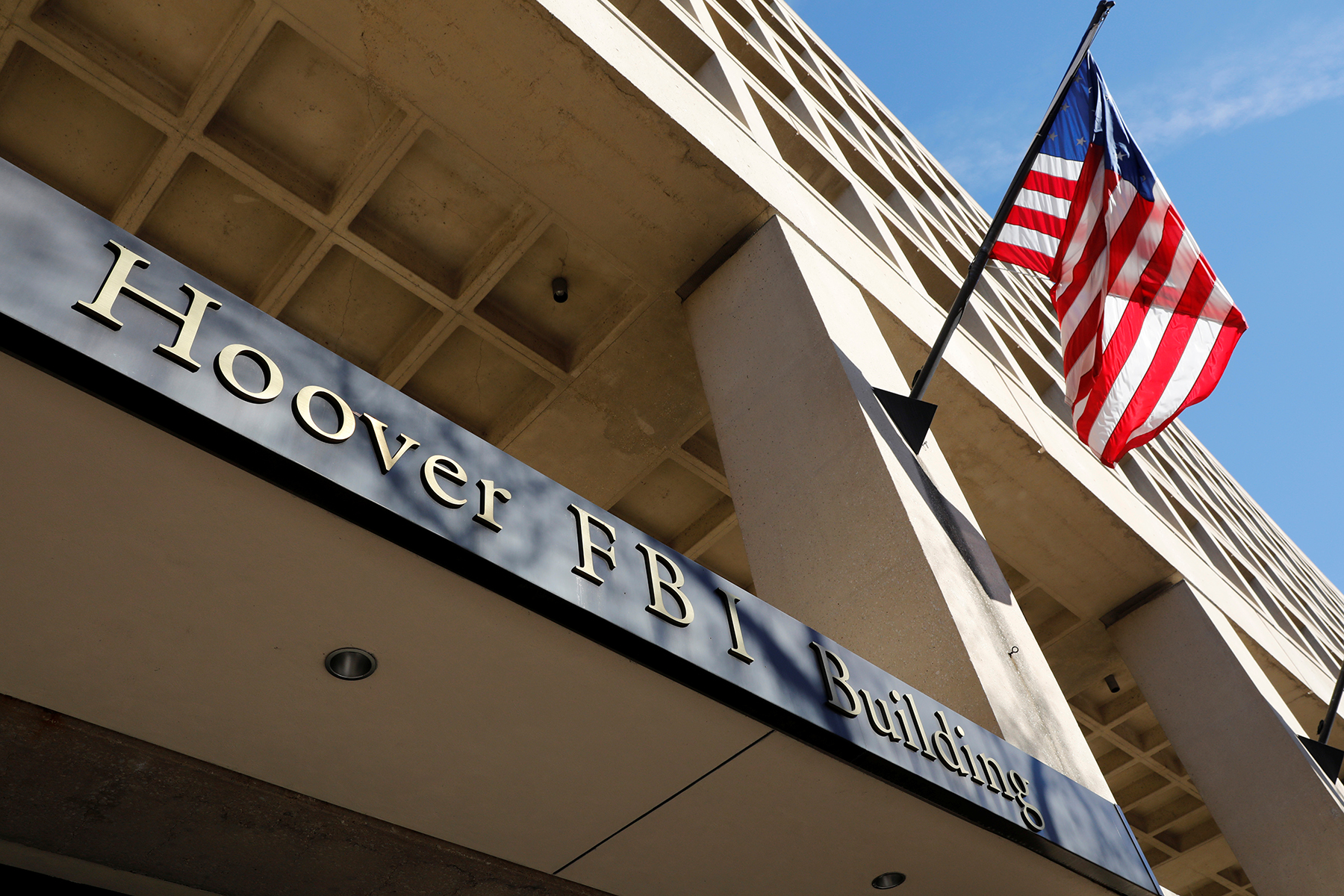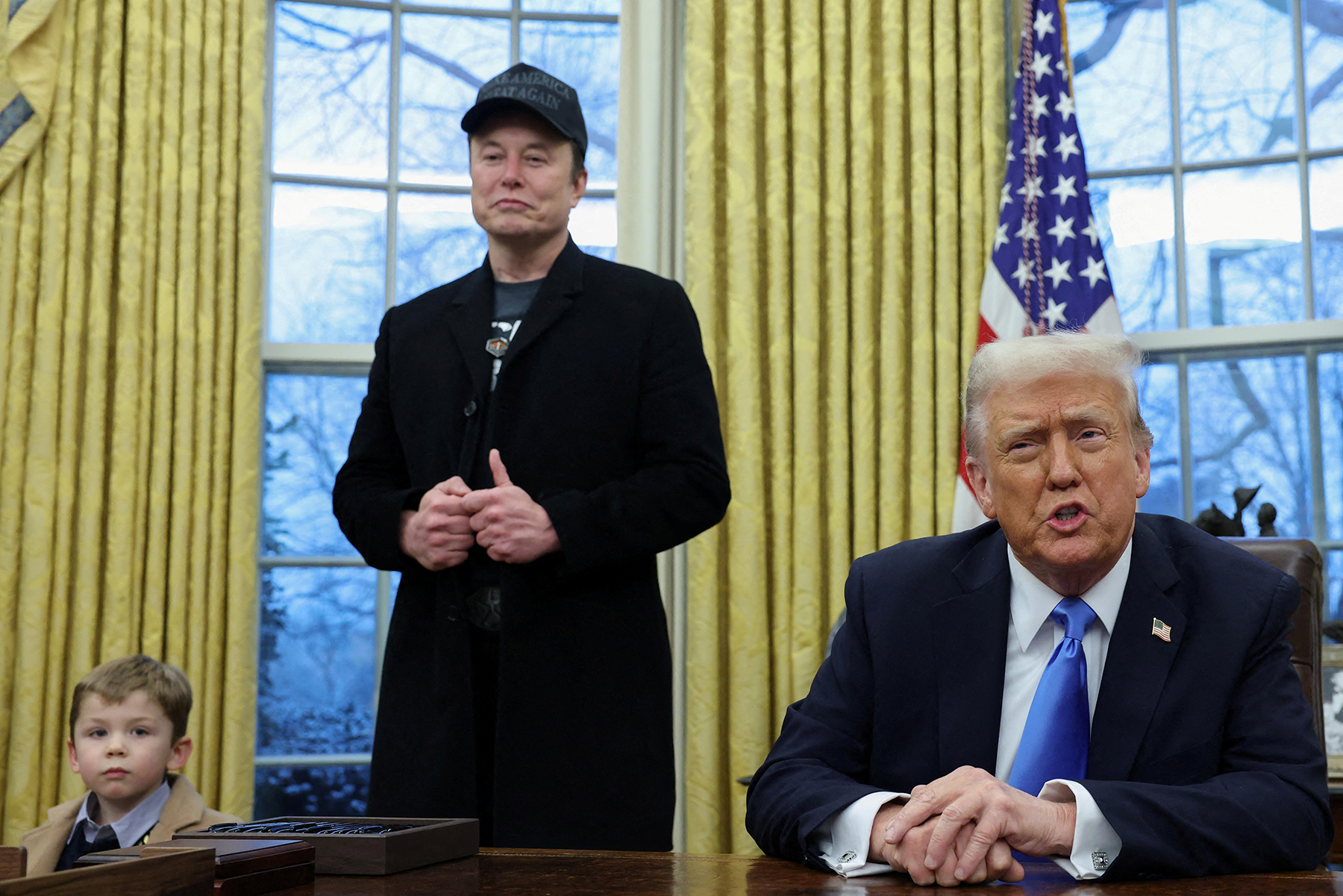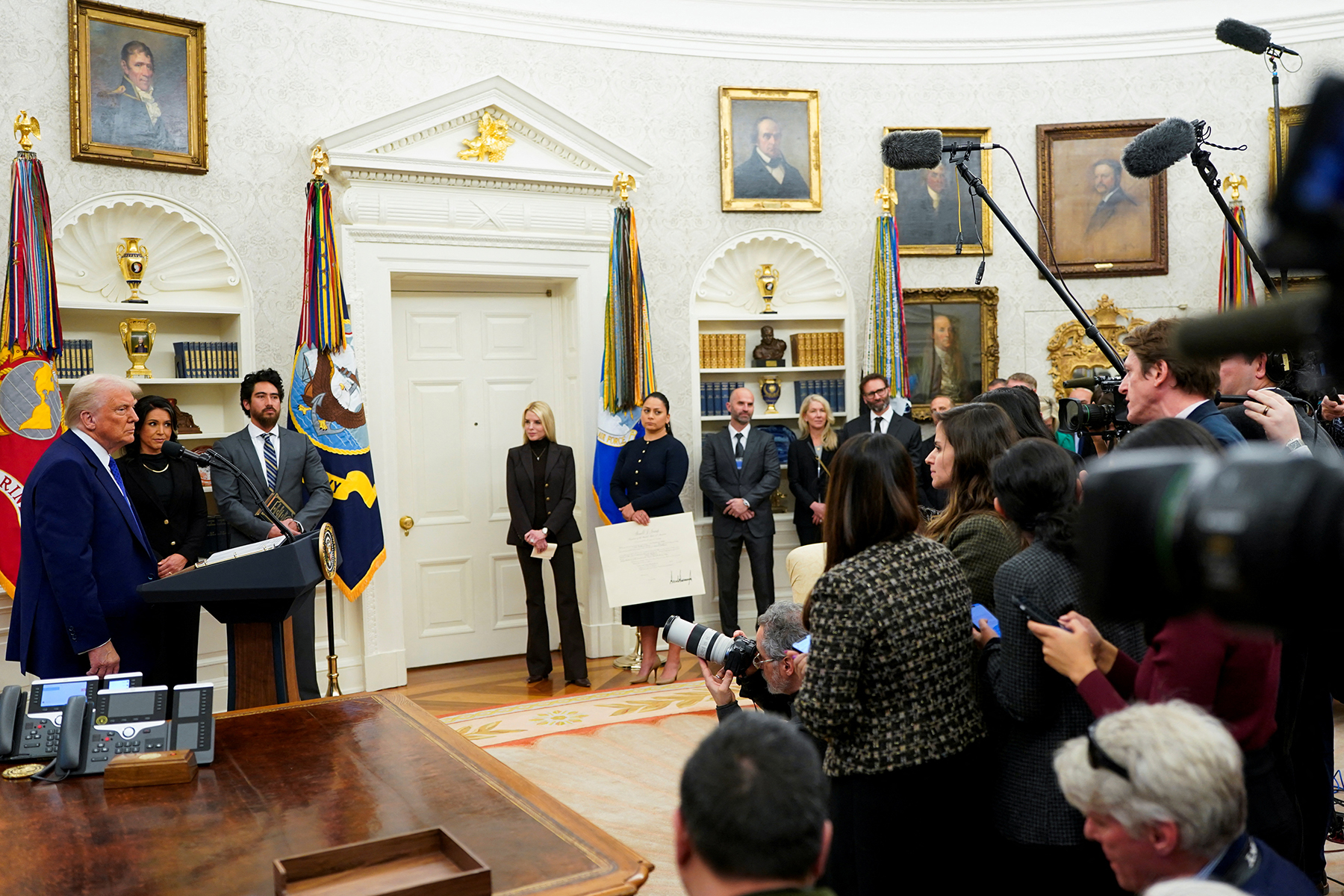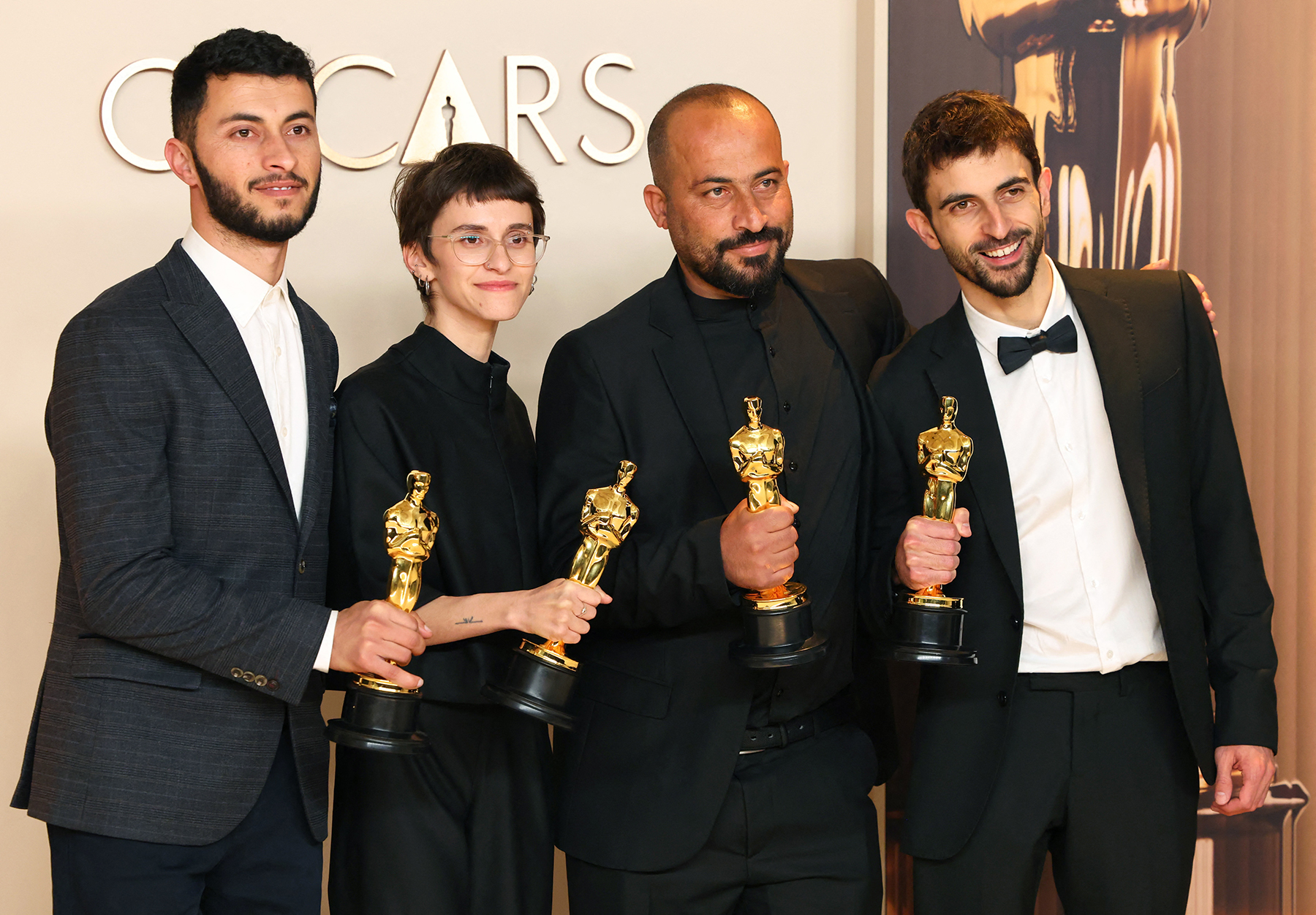A North Texas nonprofit organization, Metroplex Atheists, filed a lawsuit July 17 against the city of Fort Worth after its application for promoting an event about Christian Nationalism on lamppost banners downtown was denied. The group claims the city discriminated against its viewpoint and violated its First Amendment rights to freedom of speech and religion.
Metroplex Atheists applied to advertise an event on lampposts from Aug. 8-22, in preparation for an Aug. 26 event, but the city manager’s office denied the application. Assistant City Manager William Johnson, who has since been dismissed as a defendant in the suit, said the event didn’t meet the banner policy’s guidelines because it was not of “sufficient magnitude.”
The downtown banner display program was established in 1998, and requires that banner spots be used only by nonprofit organizations who wish to promote a “special event and/or exhibit” the organization is hosting. The event must be scheduled to take place in Fort Worth and “be open to the public, or of common interest to the general community, or recognize and/or contribute to the cultural fabric of the city.” But, there is no mention of “magnitude” — a size of event requirement — in the policy.
The lawsuit was filed in the U.S. District Court for the Northern District of Texas by American Atheists, a national nonprofit organization in which Metroplex Atheists are affiliated. The suit states that the city’s denial of allowing the group to advertise on the banners is “textbook viewpoint discrimination” because of the group’s unpopular speech. Viewpoint discrimination represents a fundamental violation of First Amendment rights because the government is not permitted to favor or disfavor viewpoints expressed in the marketplace of ideas.
The banner program, according to the lawsuit, “constitutes a limited public forum,” meaning the city “cannot exclude speech on topics otherwise permitted because the City disapproves of the speaker’s viewpoint.”
Nick Fish, president of American Atheists, said Metroplex Atheists wants to host its event about Christian nationalism because the group “felt it was important to have a conversation about public education, about preserving secular public schools in Texas, through that lens of the threat of white Christian nationalism.”
Fish added that people in Texas “are certainly feeling the brunt of some of the most outrageous attacks on secular public education,” referencing a bill lawmakers passed in May which would allow unlicensed religious chaplains to work in mental health roles in Texas public schools.
“They want to impose a very particular ideology on our kids … So we think it’s really important to have that conversation and sort of shine a light on … the fact that this is so counter to the values of the overwhelming majority of Americans,” Fish said.
The lawsuit also argues that the city’s “sudden imposition of a never-before-mentioned ‘magnitude’ requirement as the justification for denying [Metroplex Atheists] access to the Banner program constituted a prior restraint that lacked any narrow, objective, and definite standard and was therefore unconstitutional.”
Prior restraints prevent material from ever reaching the public, a serious step that diminishes the marketplace of ideas and the well of information that informs citizens in a self-governing society.
Fish describes this addition of a “magnitude” requirement as a “non-content neutral regulation on speech” that is “basically saying that you have to be minimally popular in order to access a public forum, which gets in the way of the whole point of a public forum in the first place.”
In 2019, Metroplex Atheists were approved to advertise different banners under the same policy. The bright yellow banners promoted an educational seminar which read: “In No God We Trust.” While the banners were unpopular among residents in Fort Worth, around 200 people showed up to the event, according to the lawsuit.
Then-Mayor Betsy Price tweeted in response to complaints from residents, reminding the community of Metroplex Atheists’ First Amendment rights.
“I was appalled when I saw the banners currently being displayed downtown, as I do not support or agree with the message. While many of us may not agree with the message, the organization did follow policies and procedures … We must respect freedom of speech,” the tweet read.
The city’s official statement followed suit, stating that “If an organization meets the established criteria for purchasing the banners, the city cannot discriminate or dictate the content unless it contains profanity, threats or other inappropriate images.”
In the 2022 Supreme Court case Shurtleff v. City of Boston, a religious organization wished to fly a “Christian flag” on one of three flag poles outside of Boston City Hall. City officials denied their request, and the organization sued. In a 9-0 decision, the Supreme Court ruled in favor of the religious organization, stating that the flag was private speech in a public forum, and refusing to allow the organization to fly its flag “based on its religious viewpoint violated the free speech clause of the First Amendment.”
“When a government does not speak for itself, it may not exclude speech based on ‘religious viewpoint’; doing so ‘constitutes impermissible viewpoint discrimination,’” wrote Justice Stephen Breyer for the majority. “Under our precedents, and in view of our government-speech holding here, that refusal discriminated based on religious viewpoint and violated the Free Speech Clause.”
The restrictions imposed on “potentially unpopular or minority speech,” Fish said, are unreasonable restrictions to place on a limited public forum, as Metroplex Atheists followed all requirements outlined in the city’s banner policy.
“Free speech is free speech, whether or not the government likes that speech or certain members of the community object to it,” said the suit’s author Geoffrey T. Blackwell, litigation counsel at American Atheists, in a statement. “The City of Fort Worth’s attempt to silence atheists for opposing theocracy is textbook viewpoint discrimination.”
July 17, 2023 — Metroplex Atheists Complaint
Tags
